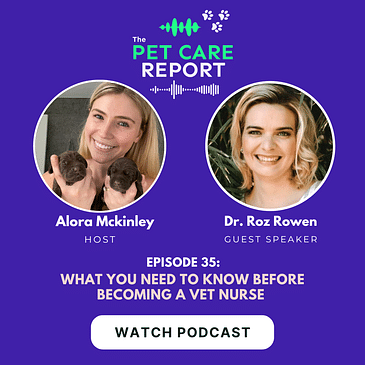This week on the Pet Care Report podcast by Pet Summits, host Alora McKinley explores veterinary nursing with Dr. Roz, a holistic vet nurse specializing in animal rehabilitation, naturopathy, and homeopathy. Dr. Roz discusses pathways into vet nursing, the skills and qualifications needed, and the rewarding aspects of the career.
Show Notes:
(00:00:50) Exploring a Career as a Vet Nurse
(00:01:46) Pathways and Qualifications for Vet Nursing
(00:03:35) Job Prospects and Daily Responsibilities
(00:07:10) Emotional Challenges and Rewards
(00:08:26) Dealing with Difficult Situations
(00:13:24) Holistic and Mobile Vet Nursing
(00:23:03) Career Opportunities and Specializations
(00:27:45) Conclusion and Contact Information
Follow Dr. Roz Rowen
https://www.naturalvetnurse.com.au/
https://www.facebook.com/TheNaturalVetNurse
https://www.instagram.com/thenaturalvetnurse/
Follow our Dog Health Host, Alora Mckinley, at https://www.instagram.com/centerfyr_gsp
Want to see more from Pet Summits? Subscribe to the PetSummits YouTube channel here: https://www.youtube.com/@PetSummits
Check out the latest free events here: https://petsummits.com/events/





